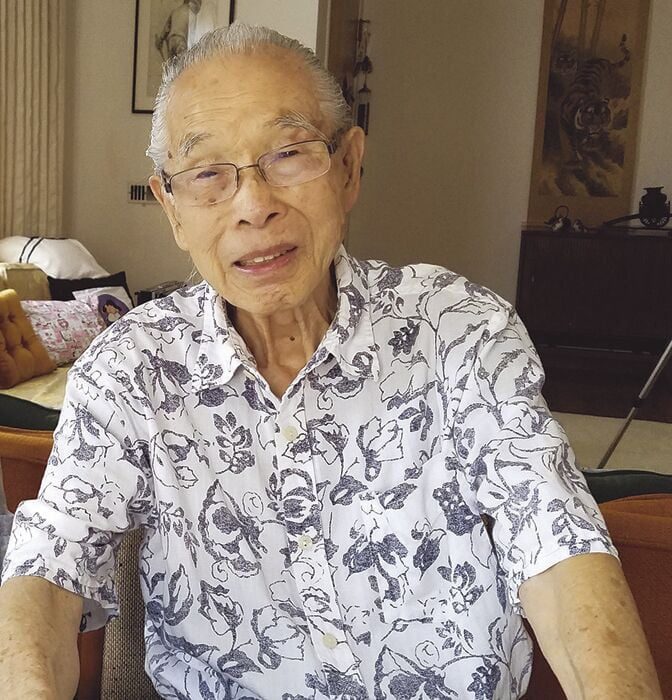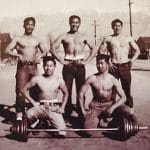When Arnold Maeda was 15 years old, the U.S. government separated him from his home and his pet dog. That was in 1942, when he and around 1,000 members of the west side Japanese American community were forcibly removed from Venice, Santa Monica, and Malibu and sent to an American concentration camp—also called internment camps—with nothing but what they could carry. Maeda and the others ended up at Manzanar, located near Lone Pine, Calif., near the foot of Mt. Whitney.
“For a 15-year old, that was unforgettably traumatic,” Maeda wrote on the Manzanar Committee’s website.
Despite his trauma—he and his family lost their home, dog, and nursery business—his influence inspired many students and scholars. Maeda became a role model for the Japanese American community at Manzanar. He participated in music and drama productions, worked in the kitchens, and became president of his senior class at Manzanar High School in 1944.
The Takahashi/Ioki family of Malibu was among those taken to Manzanar; they owned a large geranium farm close to the current location of Malibu City Hall. Today, the Chili Cook-Off lot is still known by some as the Ioki parcel.
In 2011, Amy Ioki, who was interned at Manzanar along with Maeda, spoke to The Malibu Times about the camp, where she was sent at age 17.
“It was really like a concentration camp until they found out we were really harmless,” Ioki, then 85, said at the time.
In that 2011 story, Ioki described bonding with other Japanese Americans during her time at Manzanar, like Mae Kakehashi, Arnold Maeda and Kazumi Tatsumi.
“We actually made many friends in camp. We stayed friends for 70 years now,” she said. “I guess we all had something in common. Everybody was the same. Everybody lived in a barrack. After we were released and we’d meet another Japanese, they’d ask, ‘What camp were you in?’ The conversation would start there.”
On Sept. 10, 2020, Maeda died at the age of 94. Shortly after, the Manzanar Committee—an organization “dedicated to educating and raising public awareness about the incarceration and violation of civil rights of persons of Japanese ancestry during World War II, and to the continuing struggle of all peoples when constitutional rights are in danger”—established a scholarship program in his name for students to attend the annual Manzanar Pilgrimage in 2022.
The pilgrimage first began in 1969 to “teach the history of evacuation and place it in historical perspective so that the Sansei [third generation Japanese Americans] may have the necessary tools to protect themselves against discrimination and racism which are inherent in American society,” according to former incarcerated resident Sue Kunitomi Embrey.
On Nov. 1, 2021, the Manzanar Committee and the Venice Japanese American Memorial Monument Committee announced the second Annual Arnold Maeda Manzanar Pilgrimage Grant.
The two recipients will each receive a stipend of $500 to pay for their attendance, planning meetings and for their participation in the Manzanar Pilgrimage weekend. The deadline for application submissions is on Jan. 7, 2022. Participants will be notified by the end of January 2022.
Entries must address in their paper what they are planning to change in their community and how Maeda’s life in the American concentration camp at Manzanar compares and or contrasts with the student’s life today. The applicant must address why working with the Manzanar Committee Manzanar Pilgrimage will help them better understand Maeda’s life and legacy.
Essays must be 250-500 words. Footnotes and bibliography notes of Maeda’s story must be cited. Learn more at manzanarcommittee.org.


